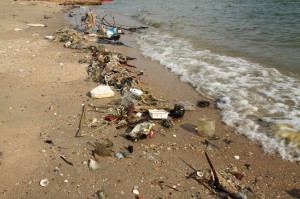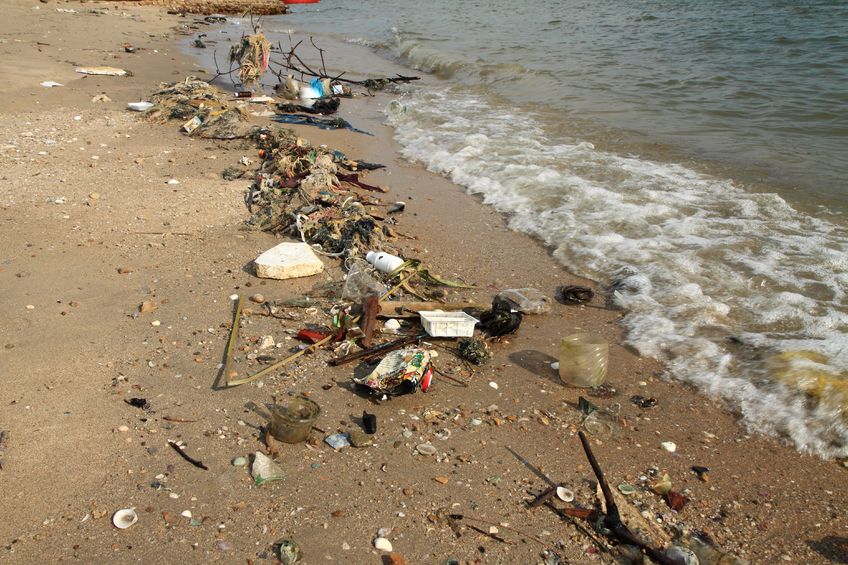 With over 22 million registered recreational boaters, simple day-to-day changes in how we operate and maintain our vessels will go a long way in protecting our valuable water resources. Take the first step, and learn more about easy things you can do to be an “environmentally friendly” boater.
With over 22 million registered recreational boaters, simple day-to-day changes in how we operate and maintain our vessels will go a long way in protecting our valuable water resources. Take the first step, and learn more about easy things you can do to be an “environmentally friendly” boater.
Anyone who has been to the beach knows that there is a lot of garbage floating around in our coastal waters and ending up on shore. Most of this garbage is making its way down to the water’s edge through street gutters and storm sewers that drain directly into local creeks. However, a small percentage may still originate from vessels.
Keep in mind that wildlife often mistakes garbage for food and eat it, thus destroying much of the wildlife. Boaters have complained of cool-water intakes valves clogged by plastic bags and causing extensive engine damage. Fishing line can become wrapped around propellers. It is important to know that there are laws that state it is illegal to throw garbage from a boat or vessel into a lake, river, stream or coastal water up to 3 miles offshore. Under the same law, marinas are required to have adequate trash receiving capability for their customers.
Keep trash reciprocals on board. Most shore-side facilities have recycling containers. If your engine is well-tuned and maintained, it is less like to leak oil and fuel into the water. For oil changes, use an oil change pump to transfer oil to a spill-proof container. Wrap a plastic bag or absorbent pad around the oil filter to prevent oil from spilling into the bilge.
Prevent fuel spills by filling fuel tanks slowly and carefully and by using absorbent pads or rags to catch drips and spills. Don’t top off or overflow your fuel tank and leave 5 percent empty to allow fuel to expand as it warms and never use soap to disperse fuel
If possible, save maintenance projects for the boatyard. Minimize the discharge of heavy metals from soft-sloughing antifouling paints by using a hard, less toxic or nontoxic antifouling paint. Use only non-abrasive underwater hull cleaning techniques to prevent excessive paint discharge. Remember, dry storage reduces the need for antifouling paints and saves money.
Dispose of paints, batteries, antifreeze, cleaning products, oil, oil filters and other hazardous wastes at a hazardous waste collection facility or event.
Never discharge sewage within 3 miles of shore. Use harbor pump-out stations and shore-side facilities. If you don’t have an installed toilet, use a port-a-potty and empty it at harbor dump station or bathroom.
Boating is one of America’s favorite recreational activities. The beauty of the water adds to the relaxation and enjoyment. Everyone needs to do their part to keep our waterways clean and safe.
Prevent Water Pollution”” Take Me Fishing. Web. 04 Nov. 2012.
http://www.takemefishing.org/boating/boat-responsibly/protect-our-waters/prevent-water-pollution>.
Follow Us: Facebook – Foursquare – Twitter – YouTube – LinkedIn

